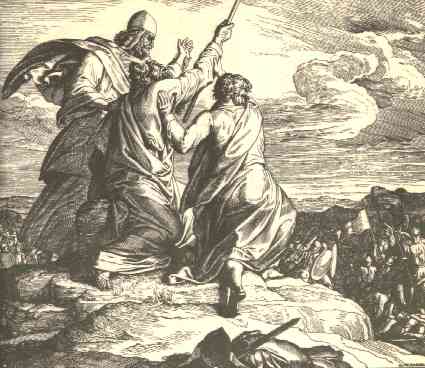Bibi, Barack and Moshe – How to choose a leader
We are in the middle of election season here in Israel and the frenzy of primary voting among the competing parties.
Ironically, the reason for the election is the controversy of Bibi Netanyahu wanting to embed in Israeli law that the State of Israel is the Nation-State for the Jewish people! Now how could that be controversial?
Although Israel’s form of government is not mentioned in Israel’s Declaration of Independence a Basic Law was passed in Israel in 1984 defining Israel as a “Jewish and Democratic State.” Which means every citizen of the state, whether Jewish, Moslem, Christian or Buddhist – educated or uneducated has an equal vote in choosing our national leader. As a result, the candidates are involved in a constant popularity contest, posturing to gain attention of the media and attract votes.
As a result, we don’t necessarily get the best, most qualified leader to represent the Jewish State – very often, the leader chosen knows very little about Judaism! 
Similarly in America – Barack Obama was not elected because he was the most experienced candidate who could represent the values of the United States. But he definitely was the best orator of the bunch, and his charisma was able to attract media attention and votes. (The same can be said for Netanyahu by the way)
The Torah teaches us how to choose a leader – at least the Leader of the Jewish people.
In this week’s Torah portion, Va’eira (Exodus 6:2) God chooses Moshe to be the Leader of the Jewish people. Moses is not the best orator, nor the most charismatic. However he has the characteristics to be the Leader. A Jewish leader is God’s emissary. He doesn’t have to be the bravest and strongest soldier, most brilliant economist, charming diplomat or efficient manager. God will win the wars and shower His blessings on us.
The Jewish Leader is both a servant of God and a servant of the people. Therefore he must have no ego or self interest in his role as “King.” Moses was a simple shepherd (like most of our kings) and was known as the humblest of all men.
In Judaism, humility means to do the right thing (God’s will) even if you don’t feel like it. God instructs Moshe to “speak to Pharaoh.” 
But there is one more thing. Humility is not enough to be the leader. God told Moshe “Go, and gather the Elders of Israel” (Exodus 3:16) to tell them that God had chosen Moshe to lead the people out of Egypt. And only with the affirmation from the eldest and wisest tribal leaders, was Moshe and Aharon to approach Pharaoh along with the Elders! (Exodus 3:18)
The true leader is someone who has no personal agenda other than to get the job done. In fact, he is someone who doesn’t want the job at all!
The way to guarantee that an inappropriate leader is not elected, is to ensure the elders (the ones who understand the true requirements of leadership) are the ones to ratify the leader. Otherwise, if we leave the choice up to the uneducated masses, they are bound to pick the most charismatic orator. Without the Wisest Elders behind the Leader, it is very easy for a charlatan to take control.



0 Comments